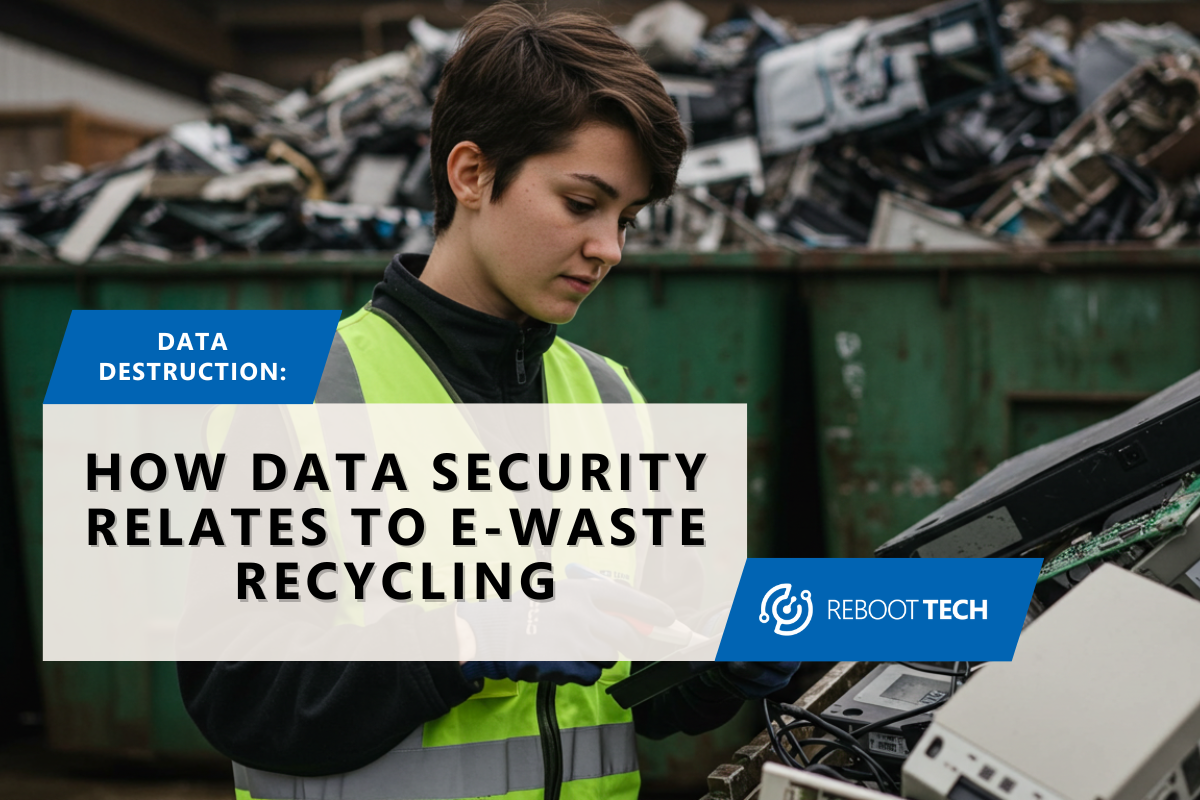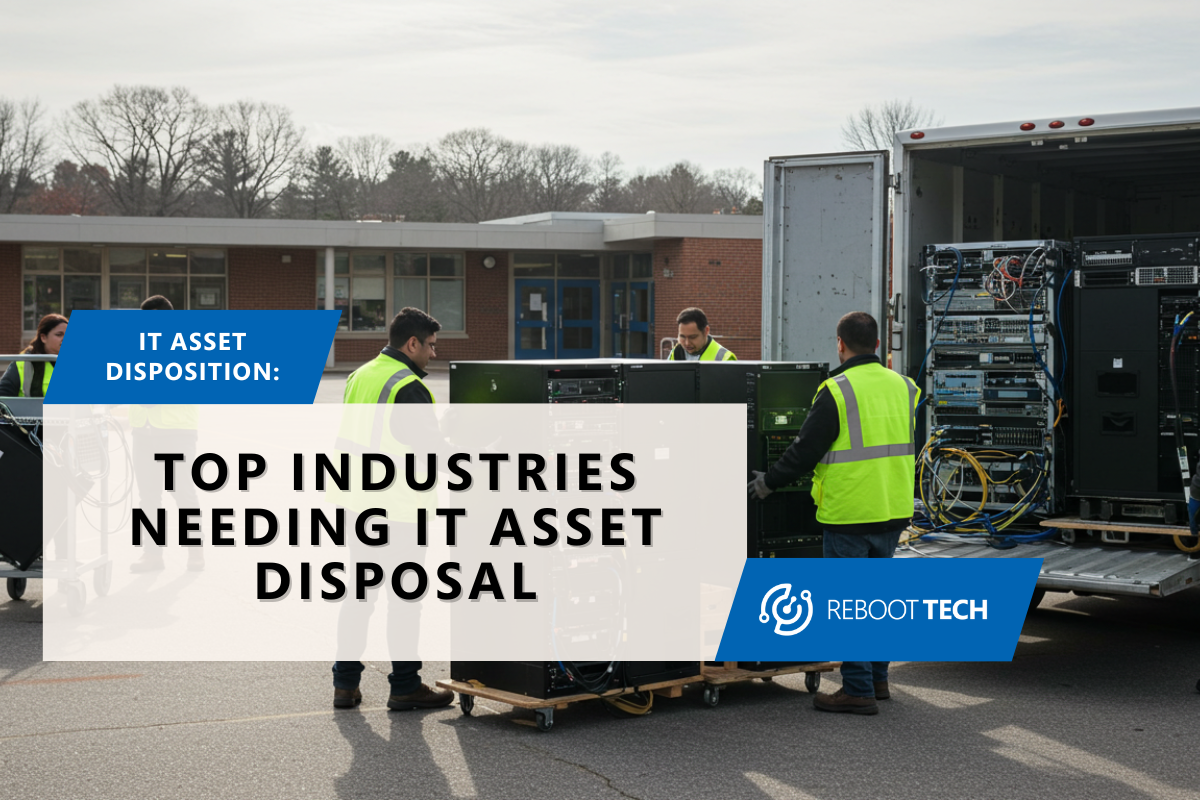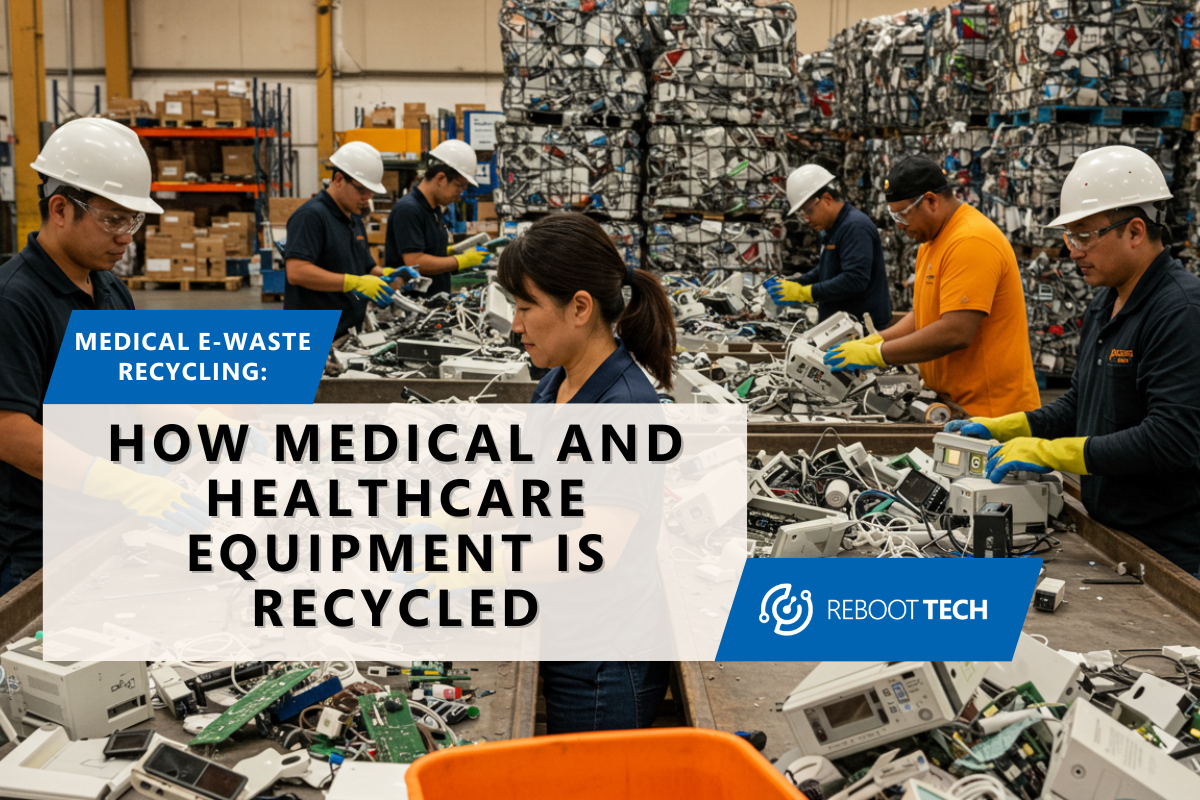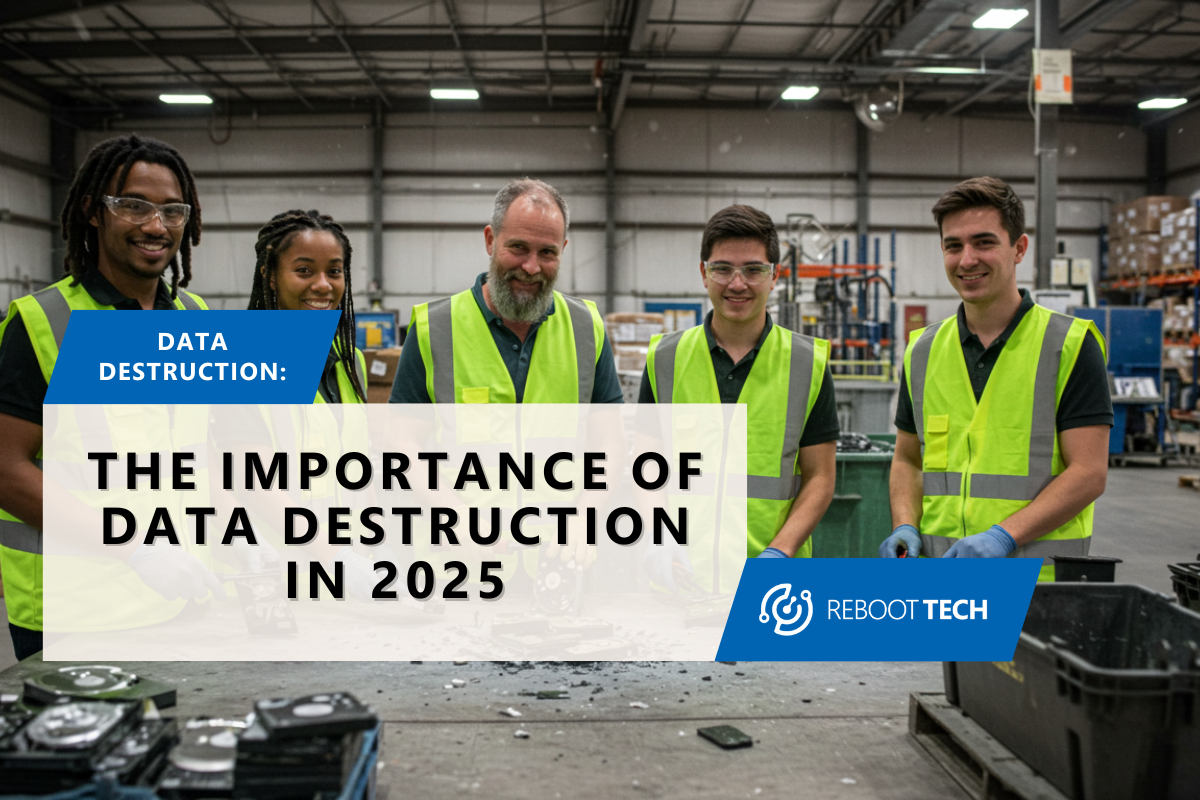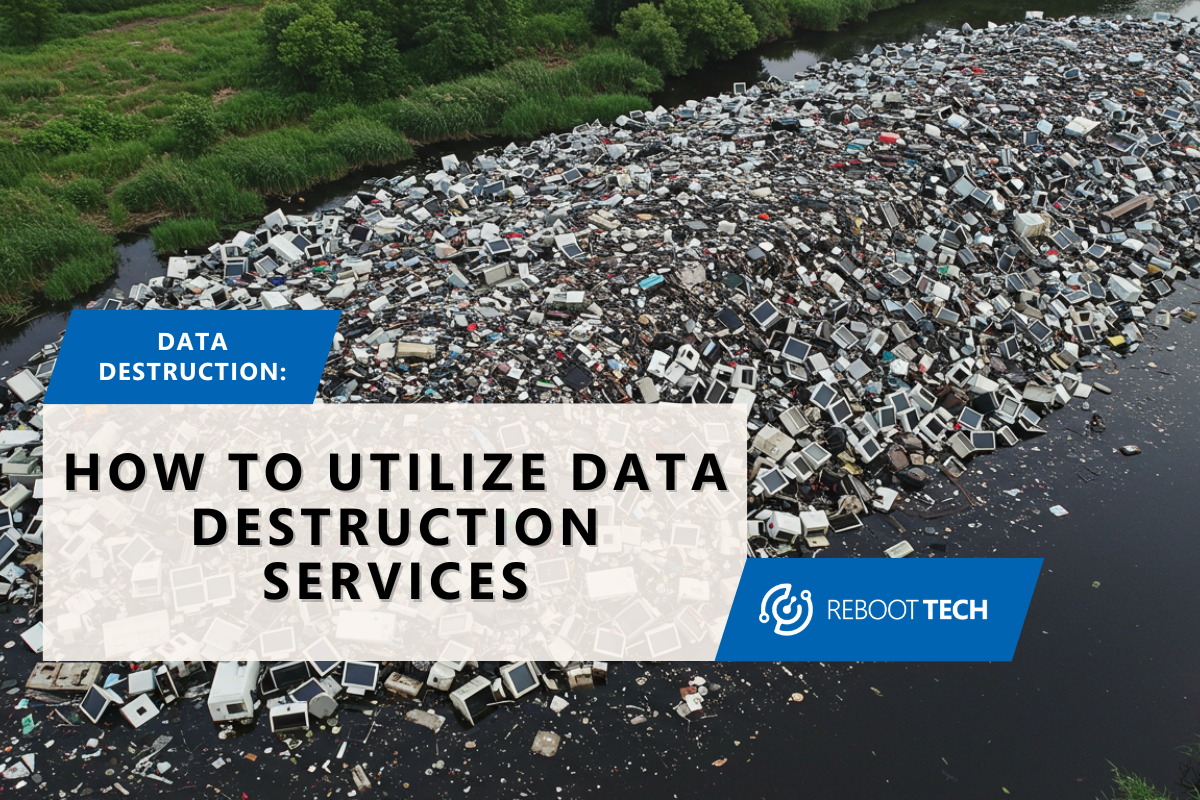
Utilizing Data Destruction Services
When it’s time to recycle old computers, hard drives, or office tech, there’s one thing you can’t afford to overlook—your data. In a world where data breaches cost companies millions and identity theft is more common than ever, properly destroying your digital information isn’t just a good idea—it’s essential.
Whether you’re a small business, a school, or just clearing out old tech at home, this guide will walk you through how to utilize data destruction services the right way. We’ll break down what data destruction is, why it matters, how to pair it with electronics recycling, and what to look for in a service provider. Let’s dive into the details and help you keep your information safe while staying environmentally responsible.
What is Data Destruction?
Data destruction is the process of permanently erasing data from storage devices like hard drives, solid-state drives (SSDs), USB sticks, and other electronic devices. Unlike simply deleting files or formatting a drive, true data destruction ensures that the information can never be recovered—even with advanced forensic tools.
There are multiple methods of data destruction:
- Software-based wiping: Overwrites data multiple times to make recovery impossible.
- Degaussing: Uses magnetic fields to scramble and destroy data on magnetic storage.
- Physical destruction: Involves shredding or crushing drives to destroy internal components.
Each method serves different needs, but all have one goal: protect your sensitive information from getting into the wrong hands.
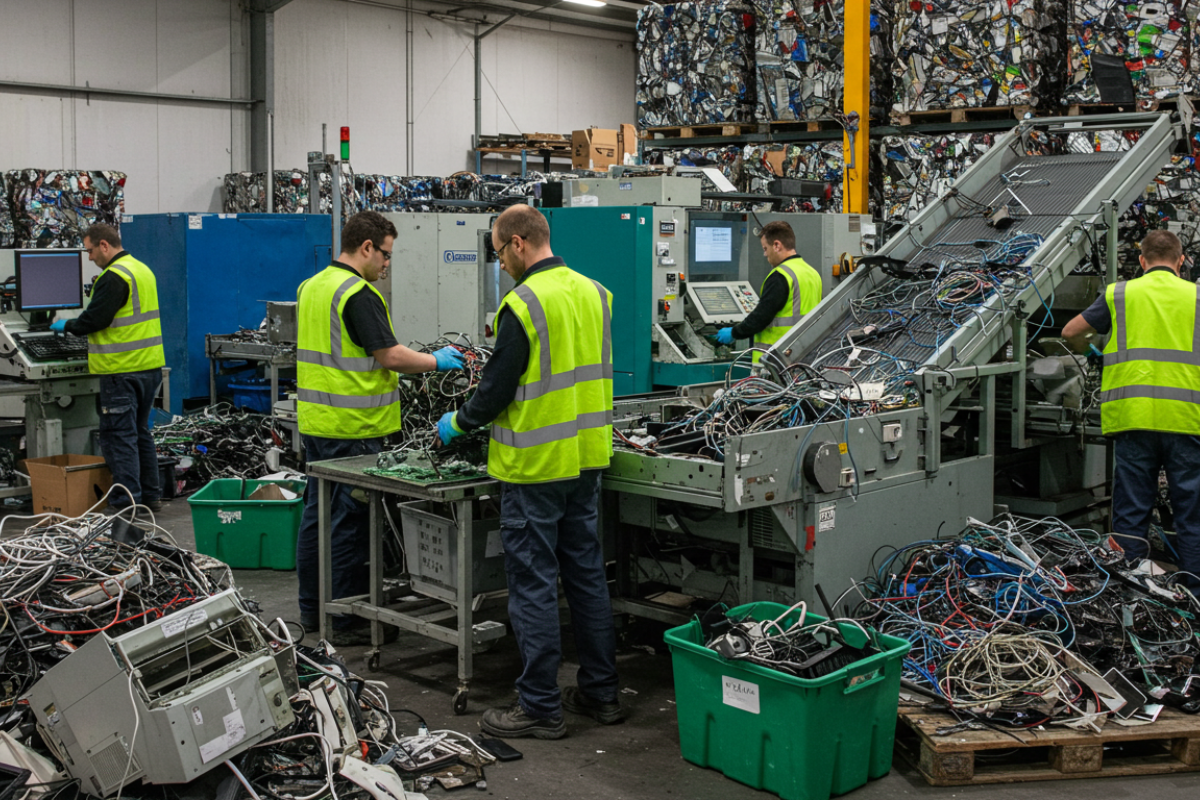
Why You Need Data Destruction
Proper data destruction isn’t just a cybersecurity best practice—it’s often a legal requirement. Businesses in industries like healthcare, finance, and education must comply with data protection regulations such as HIPAA, FERPA, and GDPR.
If you toss a hard drive in the trash or send it to a recycler without verifying proper data handling, you risk:
- Identity theft
- Legal fines
- Loss of client trust
- Unauthorized access to company secrets
That’s why using certified data destruction services is critical. You need to know your data is gone for good—no questions, no compromises.
Recycling Your Bulk Electronics
When businesses and institutions recycle electronics in bulk, the stakes are even higher. Let’s look at a few examples:
Schools
School districts and colleges often replace hundreds of devices at once. These machines store everything from student grades to internal emails. With data destruction, IT staff can wipe and dispose of outdated devices confidently, knowing sensitive records won’t be exposed.
Government Offices
Local and state agencies handle confidential personal data. During hardware upgrades or office closures, agencies need certified destruction services to ensure secure compliance with strict privacy rules.
Small and Medium Businesses
Even small companies accumulate devices with customer info, passwords, and financial records. Disposing of this tech without a data destruction plan can be disastrous, especially if customer data is leaked.
Healthcare Providers
Medical offices and hospitals store patient records on desktops and laptops. HIPAA mandates secure destruction of this data. Failing to comply can lead to massive fines and loss of accreditation.
Regardless of industry, recycling bulk electronics isn’t just about clearing space. It’s about managing digital risk while staying green.
What to Look for in an E-Waste Recycling Company
Not all recycling companies are created equal. If you’re planning to recycle electronics that contain sensitive data, here’s what you should check for:
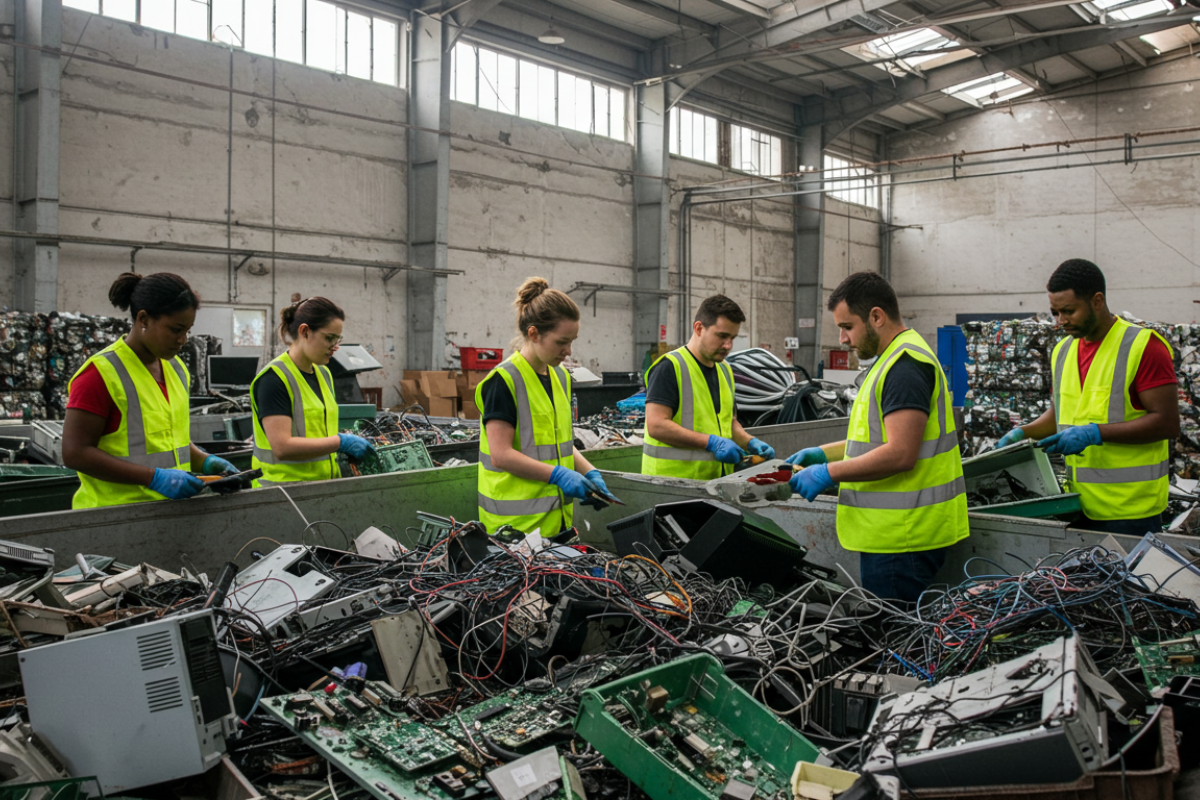
- Certifications: Look for R2 (Responsible Recycling), e-Stewards, or NAID certifications, which ensure proper handling and secure data destruction.
- On-site vs. off-site destruction: Ask if the provider offers on-site shredding or will transport your drives to their facility. Make sure transportation is secure.
- Chain of custody: A documented chain of custody gives you peace of mind by showing who handled your items and when.
- Certificate of Destruction: This document proves that your data was securely destroyed and is often required for compliance audits.
Transparency, accountability, and certifications are the cornerstones of a good data destruction service.
The Process of Data Destruction and Recycling
Curious how the process actually works? Here’s what it looks like step-by-step:
- Inventory: You or your recycler will create a list of all devices to be destroyed. This helps track everything and simplifies reporting.
- Collection: The recycling company picks up the electronics or you drop them off at a secure facility. Some companies offer locked bins for large-scale jobs.
- Data Destruction:
- Drives are wiped with certified software
- Or destroyed physically using shredders or crushers
- The method depends on your preference and compliance requirements
- Recycling:
- Once data is destroyed, devices are dismantled
- Materials like plastic, glass, copper, and aluminum are sorted for recycling
- Hazardous components are separated and handled according to environmental regulations
- Documentation: You receive a Certificate of Destruction and recycling report detailing what was processed, how, and when.
- Confirmation: Some providers even allow video confirmation or audits of the destruction process for extra assurance.
Working with Reboot Tech
At Reboot Tech, we specialize in secure, certified IT asset disposition and e-waste recycling services. Whether you’re a business upgrading your infrastructure or a school clearing out outdated tech, we handle your electronics with care and compliance.
Here’s what we offer:
- Certified data destruction using physical and software-based methods
- Chain-of-custody documentation
- Certificates of Destruction for your records
- Responsible recycling that meets California’s strict environmental standards
- Bulk pickup and drop-off options
Our team works with you to tailor services to your needs—whether you’re recycling 5 computers or 500. We understand how important data privacy and sustainability are to your operations.
Why It’s Worth Doing Right
Data destruction isn’t just a checkbox—it’s your digital peace of mind. By working with a certified provider like Reboot Tech, you safeguard your information, comply with legal regulations, and contribute to a cleaner planet.
So the next time you’re clearing out old tech, don’t just wipe it and hope for the best. Use professional data destruction services that ensure your information stays secure from start to finish.
Protect your data. Recycle responsibly. Partner with Reboot Tech.


